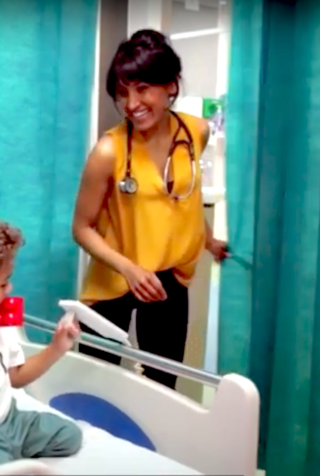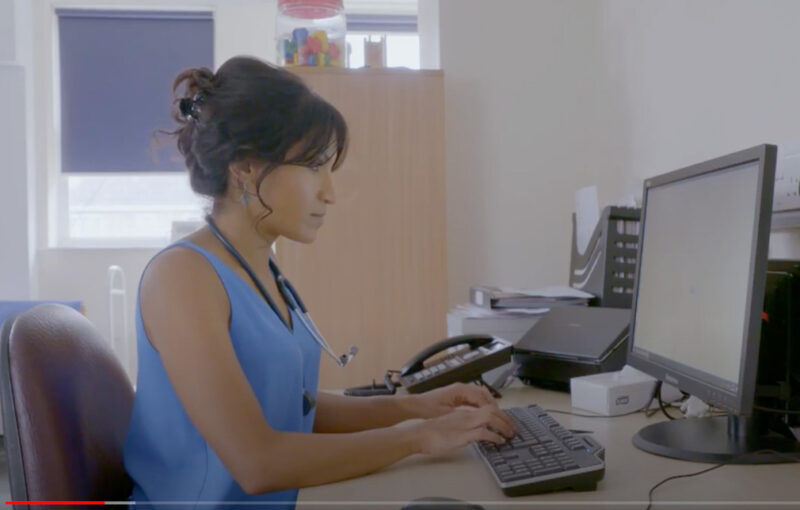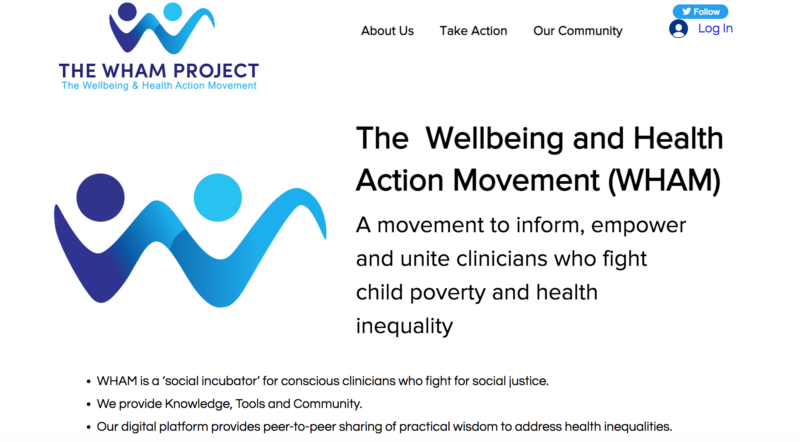How did you first get involved in improvement, and what has been your journey since then?
As a young paediatric trainee, I felt helpless and frustrated that I couldn’t do more for families whose health problems were clearly related to poverty. Over and over again I’d be told, “That’s someone else’s job, sweetheart”. But whose?
Quality Improvement (QI) helped to unlock a way for me to change local practice and I haven’t looked back since!
Quality Improvement (QI) helped to unlock a way for me to change local practice and I haven’t looked back since! By working with other paediatric trainees also interested in tackling the social determinants of health, we’ve developed and improved social screening tools and local resource leaflets, established parent groups and even successfully built the business case for a family support worker in A&E from our QI data. This is just the beginning and we know we can do so much more, amplifying this work is my focus now.
What most inspires you professionally?
Carol Dweck, Lewis and Virginia Eaton Professor of Psychology at Stanford University introduced the concept of the ‘growth mindset’, and sadly it’s rarer than we’d like in institutions like the NHS. So when you see leaders who embody a ‘can-do’ attitude, positivity and a willingness to learn, that’s something very special indeed.
Dr Su Laurent at Barnet Hospital has always been the epitome of the ‘growth mindset’ to me. Nurturing and encouraging to younger colleagues, she is also – even in retirement – up for trying new ways of working and new skills herself.
Against all the obstacles, she allowed me to experiment with introducing dance to the paediatric ward, and our QI project showed the benefits to staff, parents and children alike. She made me believe that change is possible – that’s inspirational!

Can you share a hard-won lesson you’ve learnt about what makes for a successful (or unsuccessful) improvement project?
I learned the hard way that change is not a solo enterprise; improvement never happens alone.
As a junior, I once tried to change the hand washing policy on my neonatal ward. I naively hoped that presenting the latest evidence at a journal club would seal the deal but that’s not how change works. Change is not just about data, it’s about culture too. As the new kid, without building relationships with and engaging the pivotal stakeholders, I was never going to convince a whole department to change their ways overnight.
The social is central to QI. Relationships are key. Without trust, connection, and patience, change is just a dream.
What change could we make that would do most to embed continuous improvement in health and care?
QI is often bandied around in NHS as though it were somehow special – an add-on that requires specialist training for a specific kind of person in a specific kind of role. Every single human being is born with all the necessary ingredients to be a change agent: creativity, curiosity and a commitment to make things better. But in medicine and the NHS more widely, we replicate societal hierarchies and recapitulate power dynamics when we talk as though QI is only for doctors, scientists or experts.
Every single human being is born with all the necessary ingredients to be a change agent: creativity, curiosity and a commitment to make things better.
I would like to see QI, amongst other things, taught inter-professionally. Every member of the team no matter how junior or what their disciplinary background is, should be encouraged and expected to use their inherent capabilities to effect the change they need where they work.
That requires democratisation of our workplaces but also a restructuring of jobs. NHS workers are already over-stretched, QI as currently practiced is one additional demand too far. All jobs ought to have space and time built-in to allow the talents and potential of our diverse and brilliant workforce to flourish.
Why did you join Q?
There is power in numbers, but I also believe in the power of the hive mind. We can learn so much from people who are already grappling with problems like ours. Q is a good example of a network helping to connect people who might otherwise never meet. We now have a ‘Child Health and Wellbeing’ Special Interest Group (SIG) – an exciting development!

What new connections have you made as a result of joining the Q community – and what have you learnt so far?
The Q community is fantastic for providing inspiration and for demonstrating that many ideas have already been tried elsewhere. This has helped me to learn where to focus my efforts, who to approach for more advice, and brought me into projects where I could contribute fruitfully.
QI’s secret weapon is its methodology, which provides even fairly inexperienced clinicians with the tools to be able to build the case for, and implement, change. And it’s bringing that feature together with the power of networks that has led me to my latest project!
Can you tell us about something you’re currently working on that Q members might be able to get involved with?
My latest baby is the Wellbeing and Health Action Movement (WHAM). WHAM is a movement to inform, empower and unite clinicians who fight child poverty and health inequality. It’s built on the idea that we all have the power within us to do something to address the social determinants of health, if only we had the right knowledge, tools and community.
I think of WHAM as a ‘social incubator’ for conscious clinicians who want to fight for social justice from within clinical settings, using QI as one of our main tools.
[…] We all have the power within us to do something to address the social determinants of health, if only we had the right knowledge, tools and community.
It is a digital platform that provides peer-to-peer sharing of practical wisdom to address health inequalities. Our crowd-sourced resources come from the grassroots. No bureaucracy, no top-down interference. It’s for ordinary clinicians, by ordinary clinicians, empowering each other as and when we need it. Rooted in the belief that true change comes from the ground up not from above – we’re not waiting for others to act on our behalf. We believe the time to act is now.
If you’d like to find out more visit our website.

Interested in learning more about Guddi’s journey? Get in touch.